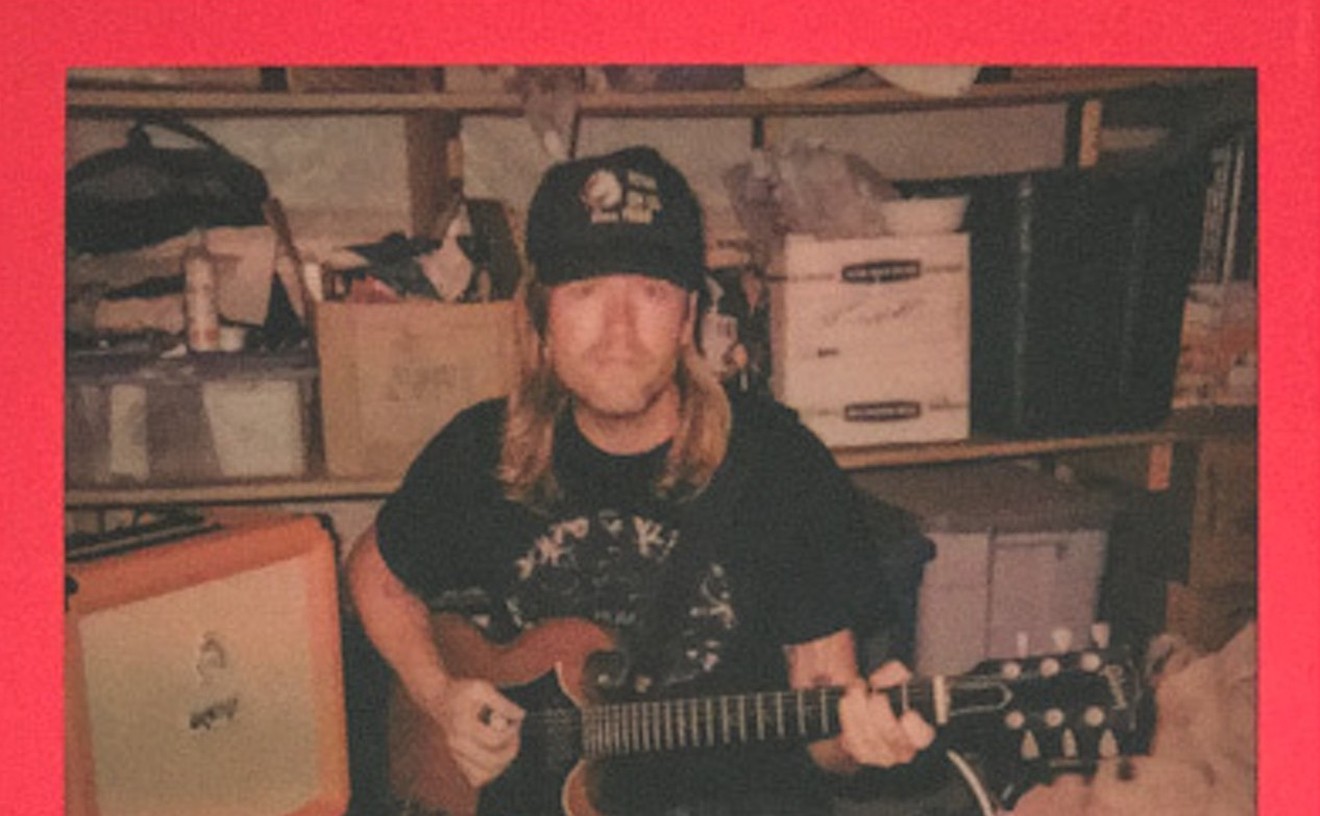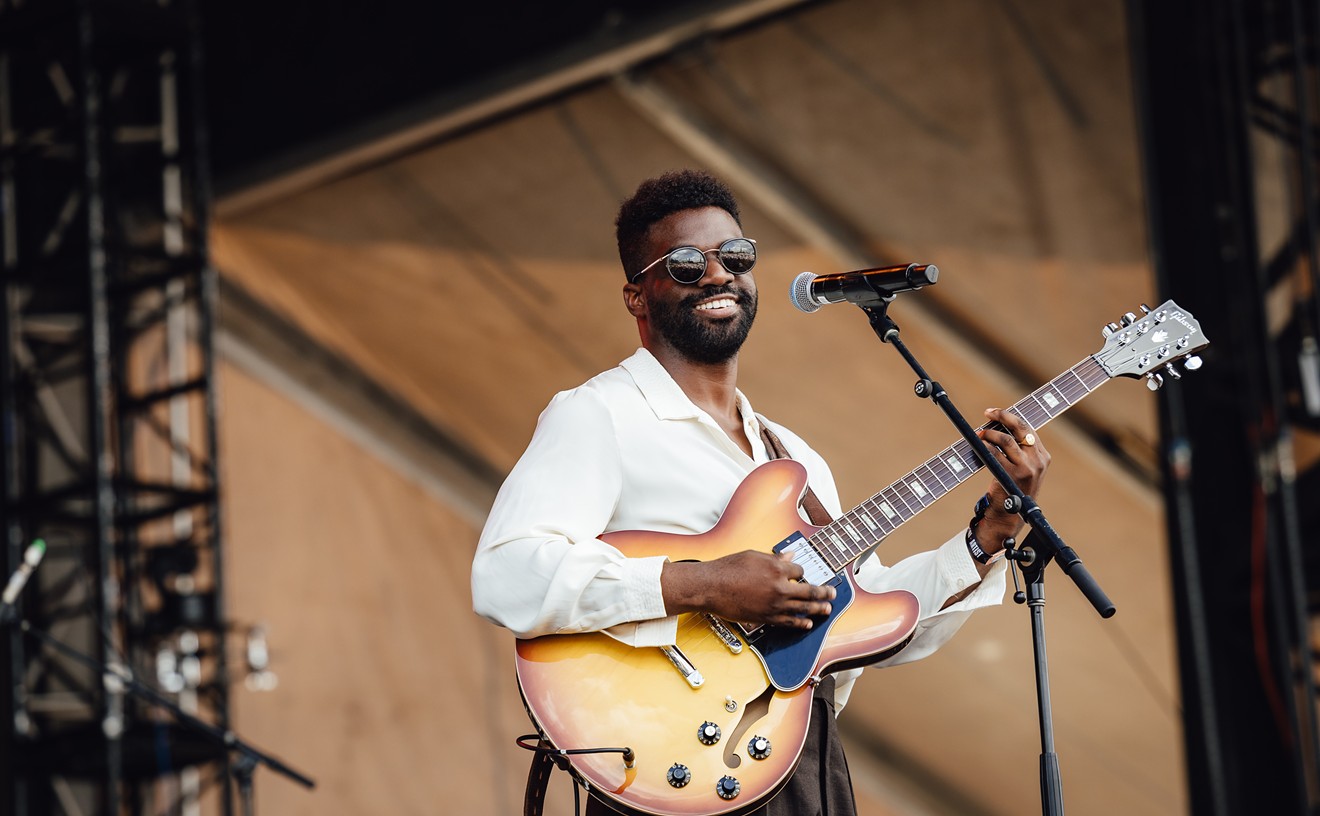The way Walton recalls it, he and Coltrane first met, most likely, during a jam session at Birdland in Manhattan. Coltrane liked to go downtown and check out the younger musicians, though he was no more than seven years older than Walton at the time. They met and became friends, which was all the easier since the two men lived near each other in Manhattan. Walton recalls that one night, Coltrane came over to his pad with the changes to a new tune he was working on. The tenor player asked Walton whether he'd record it with him and Humphries, who was touring with Dizzy Gillespie's band at the time; Walton said sure, that'd be fine. But nothing came of the initial sessions. Walton left to go on tour with trombonist J.J. Johnson--who was something of a mentor, a man who defined "impeccable"--and Coltrane went back to the studio to finish without him; Atlantic Records needed the album yesterday.
That is how Cedar Walton ended up playing on--then not playing on--Giant Steps. That is why, in the handful of articles written about the man since the mid-1980s, there is not a single mention of his participation on the album; it's as though it never happened. Yet the irony is, the only copy of Giant Steps anyone can purchase these days is one that does indeed feature Walton: Last year, Rhino Records commemorated Atlantic Records' 50th anniversary by reissuing some of the label's most important albums, each with a handful of unreleased tracks and outtakes. Walton's original sides, made two months before Tommy Flanagan replaced him on piano, appear on the disc, which is now the only version available for purchase.
When asked why no one ever mentions his participation on Giant Steps, Walton says--in a deep, matter-of-fact boom--that "the record Giant Steps doesn't have me on it. Why would anyone mention it?" He says this as though the interviewer is out of his mind for suggesting otherwise. "It's just logic. The person who appears in outtakes of a movie isn't heralded."
Yes, he is told, but you do appear on the CD version.
"I find that slightly hard to believe, but if you say so, I'll believe it," he says, clearly not believing it. "This is a CD? Unbelievable." He pauses, then harrumphs. "Well, that's great." For a second, his bewilderment seems to give way to genuine delight. Maybe it's just nice to be remembered.
And so it goes for one of jazz's great piano players: a man always just slightly out of the picture, a composer-bandleader never quite as heralded as his peers and never quite as forgotten as many others. He has forever been the man in the middle, releasing dozens of records on labels big (CBS Records) and small (Astor Place Recordings, which just issued his brand-new Roots) and playing with historic icons (Coltrane, drummer Art Blakey) and Young Turks on their way up with pockets full of coin (among them Dallas' Roy Hargrove, Joshua Redman, Terence Blanchard).
It's enough to make a would-be legend a bit grumpy, which is perhaps why Walton feels the need to critique almost every question asked of him during this hourlong interview, rating them as "good" or "pointless." As such, it would be easy to dismiss his manner as gruff or impolite.
But the man can be the very essence of charm, especially when you understand that he has lived the most extraordinary life and is kind to share even the most fleeting snapshots from it. Walton's not rude, but almost gracious and humble about a life spent sharing stages and studios with Blakey's Jazz Messengers, J.J. Johnson, trumpet heroes Dizzy Gillespie and Kenny Dorham, Clifford Jordan (who played in Walton's band)...and, yes, John Coltrane. There was even that one special afternoon in 1956 when Army soldier Walton, while stationed at Fort Dix, New Jersey, jumped on a bandstand to play with Edward Kennedy "Duke" Ellington.
"Me and a singer friend of mine asked him to sit in," Walton recalls of the day he took a solo on Duke Ellington's piano. "He sang 'What is This Thing Called Love?' We were going to be shipped to Germany the next day or so, so we had our nerve. The last thing we expected him to say was yes. So he said, 'Go easy on those keys, young man.' Then, when we finished, and the whole band joined in at the end, he said, 'I thought I told you to go easy,' which was a very Ellingtonian way of complimenting someone. It was exhilarating. But it wasn't very crowded--it was in a huge place, like a gym. That's probably why he did it."
Walton is happy to recount stories he has no doubt told a thousand times to giddy acolytes who think of him as the hem of history; if you will never meet John Coltrane, well, you can always talk to a guy who played piano for him. Or who played with the great J.J. Johnson, who long ago retired from the bandstand and moved back to Indianapolis. Or Clifford Jordan, a member of Charles Mingus' Sextet during the 1960s. Or Ellington.
But there is no arrogance in his voice, no real tone of condescension in his answers. He is, after all, a man who insists that "I still don't have my own voice. People tell me they recognize me, but that's not something that I am aware of, to tell you the truth."
Walton, born in January 1934, learned his craft from playing along with the blues and big-band and R&B records his parents kept around the house. He was never concerned with sheet music, preferring instead to play by ear, finding the right notes on the keyboard like an explorer. Occasionally, his mother would give him lessons, but that was when she wasn't busy teaching school or offering private piano instruction to other neighborhood kids.
But, like so many other revered jazzers who came out of Dallas in the 1950s and '60s, Walton learned his craft from one of the most unheralded masters ever to live in this town, Lincoln High School band instructor J.K. Miller. It was Miller--a trumpet player who once led his own bands--who taught the likes of David Newman and James Clay and Walton how to play their instruments, how to read charts, how to imitate Duke Ellington or Count Basie or Dizzy Gillespie. Miller singled out the band students with talent, desire, and discipline and showed them the big-band arrangements he had received from New York. He got them off the football field and into the band room--Walton began on clarinet, because, as he points out, it's impossible to march with a piano in your hands--and taught them how to play, though taught may be too weak a word. Pushed may be more appropriate.
Miller's influence on a generation of Dallas jazzers has gone relatively unremarked upon; his name comes up only in stories about his former students. "He wasn't the kind of guy who makes headlines today," Walton says, "but he certainly did then." Still, his influence reached far beyond the South Dallas high school, as Walton would find out when he got to New York City in the late 1950s.
"He was a supporter of those of us who leaned toward jazz," Walton recalls. "He made sure you had stock arrangements from well-known bands, and we would practice those. I played clarinet mostly by ear, but I found him on many instances telling me, 'Hey, Walton, play that for these guys, will ya?' It was a phrase of something, because I had a knack, a natural ability, compared to guys just trying to read it.
"And when I came to New York, I met [pianist] Red Garland, and he introduced me to Miles Davis, and Miles asked me did I know J.K. Miller. That just blew my mind. I don't know where he got that from, man, and I didn't ask. That was the end of the conversation. I was too flabbergasted to ask. I got dizzy, I had to go out for air. I said, 'Wow, this is a really great city, when Miles Davis knows the name of my high school band director.' I still haven't gotten over that."
Walton's mother still lives in Dallas, but few of his friends remain here--they've either died or left town. James Clay, among the greatest and most unheralded Texas tenors, died in January 1995, his frail body finally succumbing to a stroke and years of drug abuse. David "Fathead" Newman long ago moved away from here, first during his stint with Ray Charles' band, and he has called New York City home for decades. And Walton was never friends with Dallas-born Red Garland, Miles Davis' pianist in the 1950s and, until his death in 1984, one of the most influential bop pianists--a man who, like Walton, performed with elegance and ferociousness. Walton knew Red's father and would share a few bills with Red in New York, but they were never what you would call close.
Walton comes home every now and then to see family, but hasn't performed here since July 1996, as part of the Dallas Museum of Art's "Jazz Under the Stars" series. He splits time between his residences in Santa Monica, California, and New York City. He insists he doesn't prefer one place over the other, that it makes no difference to him where he plays and performs. If L.A. has one advantage, he says, it's that it's where he keeps his piano. But Walton considers questions about his writing environment to be essentially "pointless"--he's not a writer, he says, so much as he's a player, someone who finds his compositions in his spare time.
"Mine is a capitalistic approach to composition," he says. "But anywhere you sit down and play, man, it's the same. Not too long ago I had an assignment where I was supposed to come up with as many original compositions as I could, and I was backstage in Barcelona, of all places, touring with Phil Woods, and the first tune came from there. I sat down, and it started coming to me there, and I jotted it down in a way I could remember it."
In 1994, Walton appeared on the very first Leaning House Records release, Marchel's Mode, which marked the debut of local tenor sax hero Marchel Ivery as bandleader. Before going into the studio, Leaning House Records co-founder and producer Mark Elliott talked about finding a "nationally known" artist whose reputation would bolster the project; they wanted someone from Dallas or, at least, Texas. Fortunately, Walton was going to be in town anyway, visiting his mother, and so Elliott scheduled the recording sessions--February 7-9, 1994--to coincide with his visit.
Walton and Ivery weren't friends--not like he and Clay or Newman, at least, kids who had grown up playing together in high school. At best, they were distant acquaintances: Walton says he played with Ivery once or twice, but can't quite remember where or when. Still, Elliott wanted Walton on the disc--for his Dallas connections, and because Walton was, to this young kid, something of a mythical figure, the link between so many key figures in the history of modern jazz.
During the sessions, Elliott repeatedly asked Walton to lay down "Giant Steps" for Ivery's record. At first, Walton resisted--perhaps it was like retracing his steps over sacred ground--but he eventually consented, even writing out the original changes from memory, changes Coltrane had given him 35 years earlier. The version of "Giant Steps" that appears on Marchel's Mode may well be a shadow of the Coltrane original, but it's a vibrant shadow--if not a sunrise, then a glorious sunset.
"Cedar was the first person that gave me a crash course in the business side of running a label," says Elliott, who was then just a kid in his mid-20s who had never produced an album, much less one featuring a bona fide icon. "At the time, we didn't have much money at all, and I thought we were going to have to record him on an upright piano. He offered to take less money to play on a better piano--I was so embarrassed. I mean, Cedar's got this really big, booming voice, and he was already a mythical figure to me, so it was really intimidating talking to him the first few times from his home in Los Angeles, but he was very nice. When he got here, he was a total gentleman. I mean, the man played on 'Giant Steps.'"
Now, if only Cedar Walton will believe it.
Cedar Walton performs May 20 at Jazz Under the Stars at the Dallas Museum of Art. He will be joined by Marchel Ivery, Fred Hamilton, and Ed Soph.










